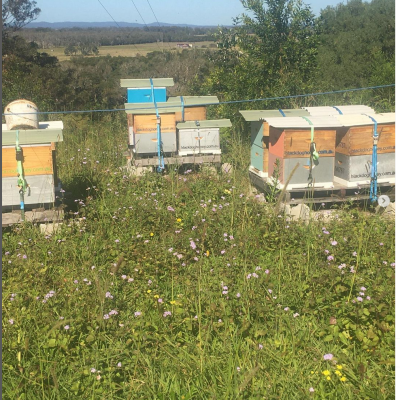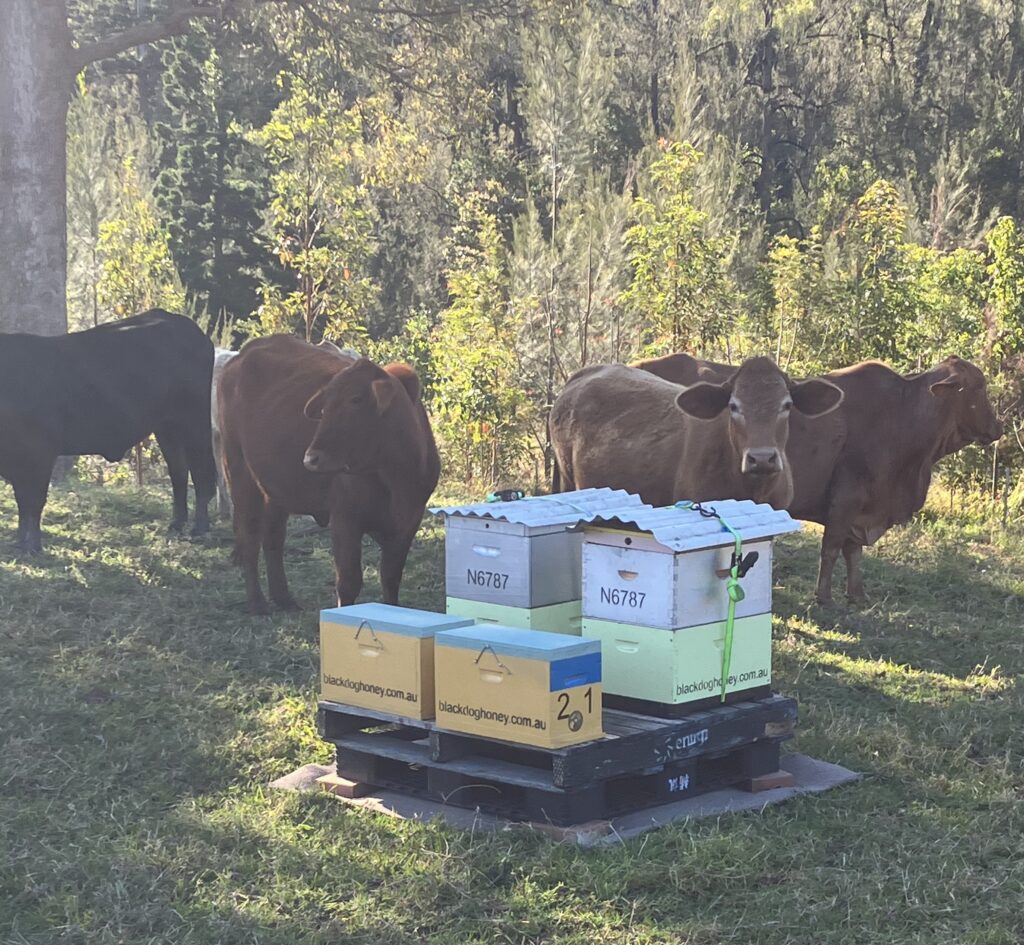

“The hum of bees is the voice of the garden.” – Elizabeth Lawrence
This quote by Elizabeth Lawrence captures the romantic and enchanting aspect of beekeeping, where the presence of bees in a garden or apiary adds a melodious and vibrant quality to the environment, symbolizing the beauty and harmony of nature in beekeeping.
Beekeeping is a captivating and addictive hobby that allows you to connect with nature while contributing to the well being of our ecosystem.
It is essential to understand that beekeeping comes with significant responsibilities.
In this “how to” beginner’s guide, we will explore not only how to start beekeeping but also the vital responsibilities that come with caring for these remarkable creatures.

1. Educate Yourself
Before one starts down rabbit hole into world of beekeeping, the first and most crucial responsibility is to educate yourself thoroughly.
Read books like ‘‘The Australian Beekeeping Manual’, attend workshops, and take online courses to learn about the important biology, life cycles and behavior of honeybees. Understanding their needs and preparing for the unavoidable challenges one will face is fundamental.
2. Comply with Regulations
Beekeeping is subject to local regulations and ordinances, which vary in every pat of the world. Check with your local government and beekeeping clubs to understand the rules regarding hive placement, hive density, and any required permits.
Compliance with these regulations is a fundamental responsibility of beekeepers to allow both humans and bees to live in close proximity.
3. Provide a Proper Hive
Your bees will need a suitable home, make sure you build or purchase the right necessary equipment, such as bottom boards, lids, boxes, frames, and foundation sheets.
Be sure that your hives are well-ventilated, secure from tipping over and offer protection from extreme weather conditions.
Regular maintenance and upkeep of the hives are very important for both, keeper and bees.
4. Monitor Hive Health
In our opinion, as a beekeeper it is the the most important responsibility to monitor the health of your bee colonies. One is a ‘Keeper of Bees” after all.
Just like any other farmer or person having livestock, regular hive inspections are crucial to check for signs of disease, pests, and the overall well-being of the bees.
Learn to recognize the different stages of brood, identify the queen, and assess the hive’s population.

5. Manage Pests and Diseases
Bee colonies are susceptible to a variety of pests and diseases, such as varroa mites and American foulbrood.
As a responsible beekeeper, you must educate yourself on pests and diseases and implement pest management strategies if necessary to protect your stripey friends.
6. Ensure Adequate Nutrition
Bees need a diverse and ample supply of nectar and pollen to thrive. As a beekeeper one must be aware of flowering times, type of flowers and if needed, provide supplemental nutrition, especially during periods of nectar dearth or in the winter months.
This might involve using sugar syrup or pollen substitutes. Keeping an eye on your colony’s food stores is essential to prevent starvation and one should not take honey out of a single broodbox hive, as tempting as it may be. Only ever take honey out of the honey super. It is important to leave enough honey behind so that the bees can manage a dry or excessive wet period.
7. Prevent Swarming
Swarming is a natural bee behavior, but it can be disruptive and potentially very annoying for neighbours and will also reduce honey production.
Responsible beekeepers should manage their hives to prevent swarming through techniques like splitting colonies or providing additional space.
Where possible swarms should be captured and relocated if they occur.
Saving the bees is very important, but we must also keep in mind that our honey bees are in direct food competition with our native bees. If there are too many swarms that are unmanaged in the surrounding areas of your hive, it could potentially mean the extinction of your local native bees in your area.
8. Harvest Honey Ethically
Harvesting honey is one of the sweet rewards of beekeeping, and as mentioned above, it must be done ethically.
it is very important to leave enough honey for the bees to sustain themselves through the winter.
Harvest excess honey carefully and without harming the bees or the brood.
9. Stay Informed and Seek Support
Beekeeping is an ongoing learning process. It is very important to stay informed about the latest research, new or old techniques as well as best practices.
Joining a local beekeeping club or online forums like ‘Beesource‘ to connect with experienced beekeepers who can provide guidance, support and know a few of the old tricks of the trade.
10. Protect Your Bees
Your bees are not just a source of honey, they are also a vital pollinators essential for agriculture and biodiversity. It is important to protect your bees and ensure they are not exposed to harmful pesticides or environmental toxins.
Speak to your neighbours to find out if they are using any chemicals in their backyard. Remember, bees can travel up to 3km to find food.
Make sure there are no farms or orchards nearby who could accidentally poison your bees by using insecticides.

Based in Northern NSW, Black Dog Honey is a supplier of local, Australian owned and operated raw honey products. Offering a range of products, Black Dog Honey now ships Australia-wide.
"*" indicates required fields